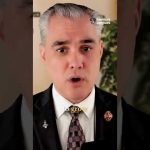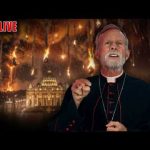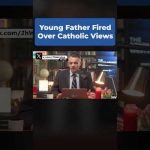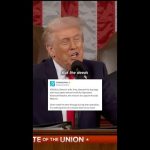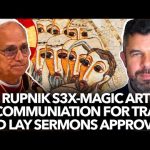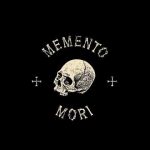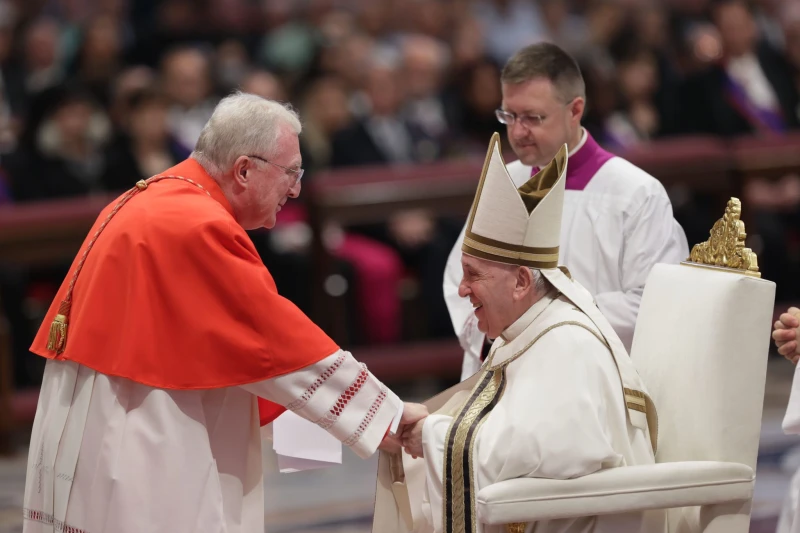
Pope Francis with Cardinal Arthur Roche, Prefect of the Vatican’s Dicastery of Divine Worship and Discipline of Sacraments, at the consistory in St. Peter’s Basilica, Aug. 27, 2022 / Daniel Ibáñez / CNA
Washington, D.C. Newsroom, Oct 17, 2025 / 11:15 am (CNA).
Cardinal Arthur Roche, who leads the Vatican’s administrative body on the liturgy, encouraged American parishes to better familiarize themselves with Pope Francis’ guidelines on the Mass and ensure the former pontiff’s writings inform the liturgical formation of clergy and parishioners.
Roche, who has served as prefect for the Dicastery for Divine Worship and the Discipline of the Sacraments since 2021, offered the recommendations at a three-day meeting of the Federation of Diocesan Liturgical Commissions (FDLC).
“Pope Francis did not set out to give a systematic treatment of liturgical formation,” Roche told the more-than 230 participants in the meeting, according to an Oct. 15 FDLC news release.
“What he was wishing to do was to take the Church by the hand and lead her toward the center of the mystery we celebrate, towards the heart of Christ which burns with his ardent desire that we should draw nigh, take his Body and drink his Blood, to worship the Father with hearts and minds made new through having been washed in the blood of the Lamb,” he said.
Roche said the celebration of the Mass must be “grounded in the Paschal Mystery of Christ” and he reaffirmed Francis’ 2017 comments that “the liturgical reform [of the Second Vatican Council] is irreversible.” He quoted Francis’s 2017 apostolic letter Desiderio Desideravi and said the document should be “more widely available to parishes” and there should be more help to “organize guided readings of it.”
In that document, the Holy Father wrote that “every aspect of the celebration must be carefully tended to,” including the space, time, gestures, words, objects, vestments, song, and music. He wrote: “Such attention would be enough to prevent robbing from the assembly what is owed to it; namely, the paschal mystery celebrated according to the ritual that the Church sets down.”
Roche said: “The depth and breadth of his liturgical vision offers us countless opportunities to pause for reflection in order to appreciate the great gift that has been handed onto us in the liturgical books.”
“I do not hesitate to encourage you to be bold, but always charitable in promoting the unique lex orandi [law of prayer] of the Roman Rite,” he said. “Discourses on the liturgy that lack a spirit of charity come from a spirit other than that of Christ.”
The FDLC was established by the American bishops in 1969 to assist in implementing liturgical reforms that stemmed from the Second Vatican Council and continues to train clergy and laity. The 56th annual national meeting was held from Sept. 30 to Oct. 2 in Baltimore, Maryland.
FDLC Executive Director Rita Thiron told CNA the document is a “beautiful, beautiful text” and that the FDLC offers a study guide for parishes that offers discussion questions and reflections on the document. She noted that the document explains how modern man has lost the ability to associate with symbols and that it “encouraged us to use symbols more ritually,” such as more abundant water at baptisms.
She pointed out that the liturgy offers spiritual formation for all those gathered, and that when clergy celebrates Mass properly, “people will be in tune better to the rich text and rich theology contained in the liturgy.”
Father Anthony Ruff, a theology professor at Saint John’s School of Theology and Seminary who focuses on liturgical music, told CNA that Roche “has made an excellent suggestion” and called Desiderio Desideravi “a beautifully written and inspirational document.”
“It helps all of us understand the Church’s vision of liturgy based on the Second Vatican Council — especially how the reformed liturgy can be the living source for our entire prayer life and our Christian discipleship,” he said.
Traditional Latin Mass not discussed at length
Roche did not discuss Francis’ restrictions on the Traditional Latin Mass at length, but he did promote the documents that speak to those restrictions.
Francis penned Desiderio Desideravi a year after issuing the 2016 motu proprio Traditionis custodes, which restricted the celebration of the Traditional Latin Mass.
Ruff said the second letter “follows naturally upon” those restrictions “for those who still struggle to accept the Church’s official liturgy as it was reformed after Vatican II.”
In Desiderio Desideravi, Francis said non-acceptance of the Second Vatican Council’s liturgical reforms “distracts us from the obligation of finding responses to the question that I come back to repeating: how can we grow in our capacity to live in full the liturgical action? How do we continue to let ourselves be amazed at what happens in the celebration under our very eyes?”
Francis wrote that it would be “trivial” to see the tensions about the Traditional Latin Mass “as a simple divergence between different tastes concerning a particular ritual form.” He wrote that he does not understand how one can recognize the validity of the council “and at the same time not accept the liturgical reform.”
When asked whether Roche commented about whether Pope Leo XIV will follow Francis in the restrictions or make any adjustments, Thiron said: “He did not speak to that at all.”
Thiron said Roche alluded to “the role of the council that would not be reversed” and that Roche “noted that Desiderio Desideravi was a follow-up to Traditionis custodes to encourage people to better understand the liturgy better as it is and as the council intended it to be.”




